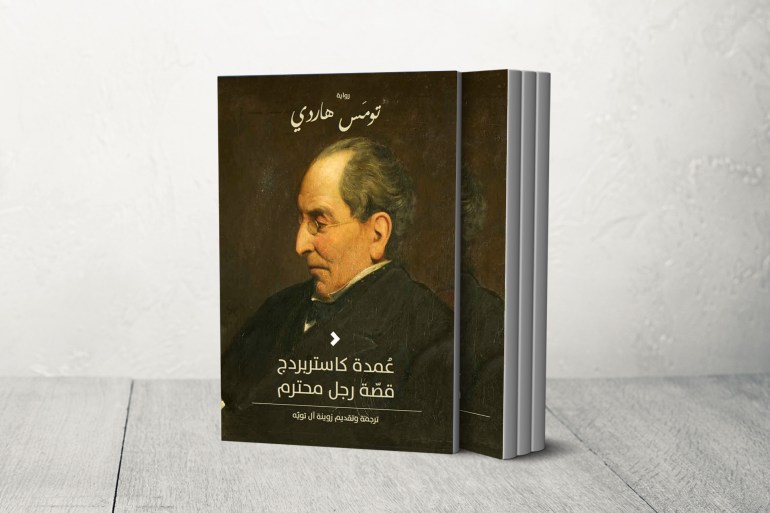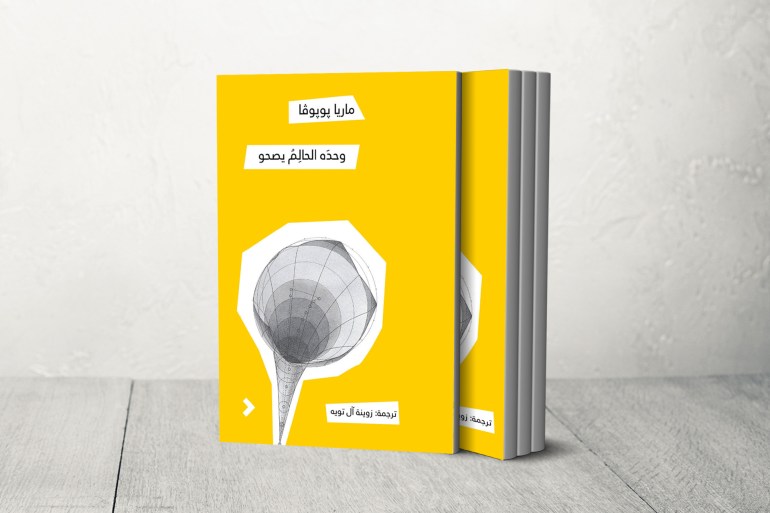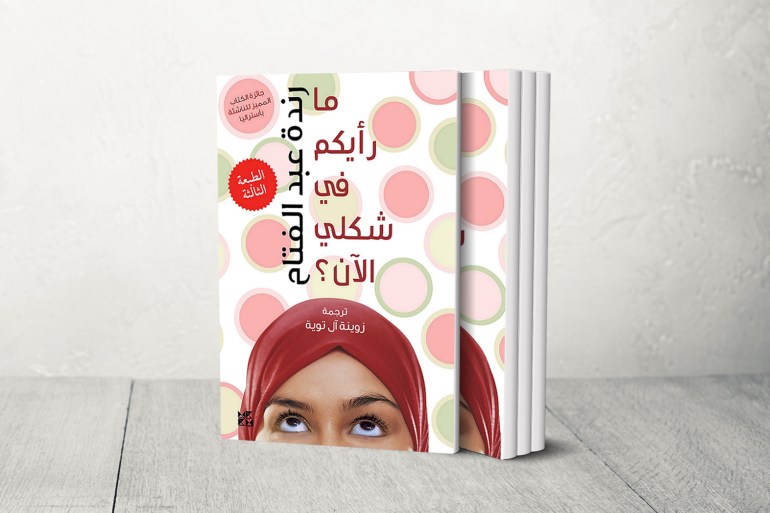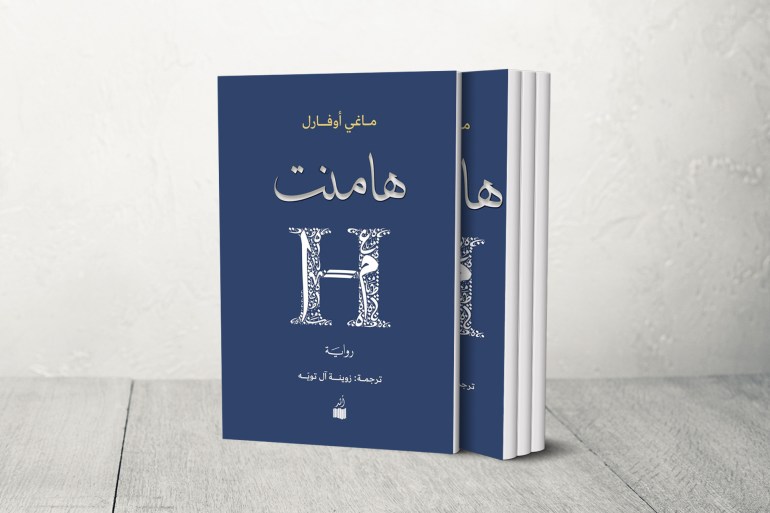Translators have been described as the unsung heroes who have played, and continue to play, a pivotal role in shaping the tastes, nature, and even the thoughts and lives of many of their readers. No one can deny the role of literary and cultural translations from global languages into Arabic in making a significant difference and impact, not just among readers, but also among Arab writers and thinkers.
Al Jazeera Net, through this platform, seeks to shed light on various aspects of translations and the works of translators, highlighting these efforts.
In this installment, we speak with Omani translator and author Zuwaina Al Towaya about translating English literature to Arabic. Since this literature is vast and encompasses works written in Britain, the United States, Australia, New Zealand, Ireland, and more, we will focus our discussion on English literature from regions outside the United States.
Zuwaina Al Towaya holds a Master’s degree in Translation Studies from the University of Edinburgh, UK, obtained in 2007. She has several translations to her credit, including "Hamnet" by British-Irish author Maggie O'Farrell (2022), "The Mayor of Casterbridge" by English writer Thomas Hardy (2019), "The Cat's Table" by Sri Lankan-Canadian author Michael Ondaatje (2019), and "Does My Head Look Big In This?" by Palestinian-Australian author Randa Abdel-Fattah (2012).
Soon, her translations of "A Month in Siena" by Libyan-British writer Hisham Matar, the Pulitzer Prize winner for Biography in 2017, and "The Last Gift" by Tanzanian-British writer Abdulrazak Gurnah, the Nobel Prize for Literature winner in 2021, will be published. Zuwaina has participated in numerous translation workshops and book editing sessions in Cairo, Abu Dhabi, and Sharjah since 2010. She supervised the translation lab at Beit Al Zubair Foundation from 2018 to 2020. Zuwaina Al Towaya has also authored a collection of stories titled "The Standing Woman Sits," published by Nizwa Magazine in 2005. Let's dive into the conversation:

One of the novels translated by Omani author Al Towaya (Al Jazeera).
The Struggle of Identity and Existence
-
How do you summarize the importance of English literature—and as a result, its translation into Arabic?
World literatures are all worthy of attention, research, and translation, as they narrate the human story everywhere and at all times. Translation is one of the most effective means to convey the stories, literatures, arts, and cultures between different languages.
Specifically addressing English literature, it expands beyond England to include writings from Ireland, Scotland, Wales, Canada, America, Australia, New Zealand, spanning different historical eras. This literature forms a rich repository for translation, not only because it has introduced us to writers such as Shakespeare, John Milton, Lord Byron, James Joyce, George Orwell, Virginia Woolf, Oscar Wilde, and many others, but also because it encompasses a generous diversity of races and cultures brought by the winds of colonialism, exile, immigration, and diaspora.
When we translate this diverse literature into Arabic, we invite other cultures into our own, allowing us to understand ourselves by understanding and viewing the 'Other' from different perspectives.
Through this literature, we have become familiar with writers of various origins who wrote in English, such as Joseph Conrad, Chinua Achebe, Kazuo Ishiguro, Michael Ondaatje, Abdulrazak Gurnah, and Hisham Matar. The significance of translating English-written literature lies here as well, as it is relayed to us by authors who have experienced the struggle of identity and existence between two cultures and languages. English literature itself has been enriched by these cultures and broadened its scope, making the need for its translation into other languages more pressing.

Novel "Only the Dreamer Wakes" translated by Al Towaya (Al Jazeera).
When we translate this varied literature into Arabic, we are hosting other cultures within our own that allow us to comprehend ourselves through understanding the 'Other' and seeing him from different angles.
When an Arab reader reads a writer who writes in English and is of African, Asian, or even Arab roots, they are not only reading literature translated from English, but are also encountering a specific culture that transports them to other lands and different times, to the extent that they might think this literature was translated from its original language and not English, and that the author wrote it in their ancestors' language, not the English language adopted for living and writing.
Rigor and Common Errors
-
Have we been late in translating English literature? And what about translating Arabic literature to English-speaking readers?
We know that the early Abbasid era was a golden age that saw prosperity in the translation of literature, logic, philosophy, medicine, and sciences from various languages, such as Greek, Syriac, Persian, and Indian, among others. However, in modern times, we have lagged in translating literature from English and other languages due to the occupation that the Arab countries endured for a long time.
Today, more than ever, we need to convey our sciences and literatures into other languages to dispel prevailing misunderstandings in a world shaped and defined by dominant colonial powers that dictate its culture and what should be known and what should be ignored.

"The Body in the Pure Ghazal" by Jokha Alharthi translated by Zuwaina Al Towaya (Al Jazeera).
The earliest clear debut of modern translation was in the 19th century in Egypt during the era of Muhammad Ali Pasha, the founder of modern Egypt, who showed a great interest in education, urban planning, agriculture, and industry, and translation thrived in his era. However, the most severe delay in translation persists to this day in translating from Arabic to English and other languages, in literature and other fields alike.
Today, more than ever, we need to convey our sciences, literatures, and arts into other languages, particularly to dispel misunderstandings prevalent in a world governed and defined by what should be known and what should be ignored by major colonial powers.
The Arab press and most books published and translated into Arabic today suffer from the scourge of common errors. The early Arab translators were exemplary in terms of rigor, mastery, and diligent work, but most of what they translated was limited to the most famous works, and many classical works have not yet been translated.

Novel "Hamnet" translated by Zuwaina Al Towaya (Al Jazeera).
-
There is a focus on the genre of the novel, while drama and poetry are rarely translated. Is this due to Arab publishers’ preferences or the translators’ choices?
The dominance of novel translations can be attributed in large part to the prevalence of this literary form over others in various languages and may indicate a decline in the importance or quality of other literary genres. However, the choices of publishers and translators also play a role.
In the context of translation in the Arab world, novel translation predominates over poetry, drama, and even short stories. This is largely due to a lack of clear direction and solid foundation for tracking and electing what's worth translating from each literary genre, as most translations into Arabic are either individual efforts or chosen by publishing houses.
There is often a lack of coordination and assessment of the importance of re-translating the same work, while other significant works are overlooked. It is common for a literary work to be translated more than once without coordination or study of the value of re-translating the same work, while other important works are neglected.
The Absence of a Clear Approach
-
Many English-writing authors have won international awards, including the Nobel Prize in Literature, which is vast and significant. Yet, there is a slow pace in translation into Arabic. Many classics have not been translated despite focusing on them in translations into other languages. Are new works only translated because they've won awards or for other reasons?
This question confirms the answer to the previous question. With the absence of cultural institutions that champion major projects in translation, not only to fill the gap and account for omissions but to keep up with the world, our lag becomes evident.
For this reason, many important old and contemporary works are neglected, and the focus is placed on award-winning works to the exclusion of others. Although some Arab publishers are making efforts to pay attention to untranslated old works and important works that have not won awards, these efforts remain limited.
"Body in the Pure Ghazal" by Jokha Alharthi translated by Zuwaina Al Towaya (Al Jazeera).
-
What are your suggestions for making English-to-Arabic translations more satisfying for readers?
There should be an Arab house dedicated to translation, similar to the Abbasid House of Wisdom, with its library, various departments, supervisors, translators, authors, editors, and critics. A house where we know what we are translating from old and new literature and what needs to be re-translated while ensuring that we strive ardently to translate our thoughts, culture, sciences, and arts into the world's languages.
What will truly gratify readers in translations from English and other languages to Arabic, is for Arab translators to reconsider their use of the Arabic language. Much of what is translated today is written in a poor, hybrid Arabic language whose main concern is to match the original text's linguistic structure. Translation offers Arab translators an opportunity to re-learn their language and return to its roots and sources, as this will also elevate the language and linguistic taste of the Arab reader.


